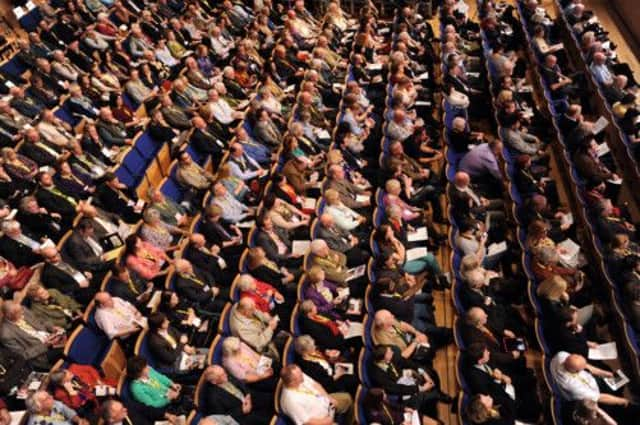Tom Peterkin: Food for thought at SNP conference


The academic, who is forever popping up on the telly to give instant political analysis, is respected across all parties for his ability to read the runes.
So there was a decent turn-out to hear him speak at a Law Society fringe meeting on independence asking the question “On the Cusp, or Still a Dream?”
Advertisement
Hide AdAdvertisement
Hide AdAlso speaking was the former SNP leader Gordon Wilson, whose plea for Yes Scotland to “attack” British identity stole the next day’s headlines.
But one suspects that it was Curtice’s more measured verdict on the challenge facing the Yes campaign that provided more food for thought for SNP members as they embark on the most important quest of their political lives.
According to Curtice, the task facing them could be distilled into three points.
One could be characterised by the Clintonesque phrase: “It’s the economy, stupid.”
Arguing for a more equal society might be an appealing argument to SNP members.
But for the public at large, the argument for independence would be far more appealing if constitutional change meant an extra £500 in the pocket.
Underpinning his analysis was research which showed that Scotland was more right-wing than might be imagined, given the Tories repeated failures north of the border.
A second challenge was to convert the “uncertainty” currently felt by voters when they contemplated the prospect of independence into an exciting vision they can buy into.
Advertisement
Hide AdAdvertisement
Hide AdThe contents of next month’s white paper will play a huge role in determining whether that sort of mass conversion can be pulled off.
A third aspect identified by Curtice was a far more subtle take on the sort of identity politics raised by Wilson in his headline-grabbing speech.
Curtice pointed to polls suggesting that two thirds of voters felt strongly Scottish.
There was, however, also one third who said they felt strongly British, an identity much more closely related to a ‘No’ vote than a declaration of Scottishness was to ‘Yes’.
Most people felt Holyrood ought to run Scottish affairs.
The exceptions, however, were defence and foreign affairs – two portfolios which are central to an independent state.
Although voters are being asked if Scotland should be independent, the question in many people’s minds is should Scotland leave the UK?
So the challenge for the SNP is to convince people that the Union is systematically bad for Scotland. So, expect Westminster bashing to crescendo.